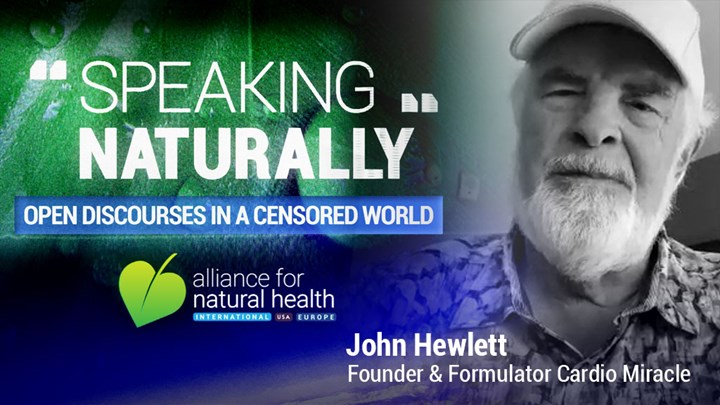Content Sections
US DoA sued for withholding info on GM
An arm of the US Department of Agriculture are being sued by the Center for Food Safety (CFS), a food safety advocacy group. The group has bought the lawsuit against the USDA's Animal and Plant Health Inspection Service (APHIS) saying that the regulator has “routinely failed to respond as required to requests for records that relate to many concerns with the GMO crops.” They believe this violates the Freedom of Information (FOI) Act, and believe that APHIS has withheld information dozens of times over 13 years. Other accusations are that the agency failed to respond to inquiries about the handling of experimental genetically modified wheat found growing uncontrolled in an Oregon field in 2013, and also to requests that were sought about the handling of other experimental crops that the group believes have escaped review and regulation. The CFS lawsuit asks the court to declare APHIS's actions unlawful and order the agency to produce the records by date to be set by the court. APHIS had no immediate response.
Lack of vitamin D linked to multiple sclerosis
A recent study published in PLOS has found that lack of vitamin D may be a direct cause of multiple sclerosis (MS). The scientists, led by Dr Brent Richards from McGill University in Canada, have demonstrated a genetic correlation that points strongly to a causal link. Of the 33,996 participants studied they identified four single-letter variants in the genetic code that were closely associated with a vitamin D blood marker. In the discussion they commented, “The identification of vitamin D as a causal susceptibility factor for MS may have important public health implications, since vitamin D insufficiency is common, and vitamin D supplementation is both relatively safe and cost-effective. The importance of these findings may be magnified in high-latitude countries, which have disproportionately higher rates of MS and also higher rates of vitamin D insufficiency.” Vitamin D has also been mentioned in the news recently with regards to researchers from the National Institute of Mental Health and Neuroscience (NIMHANS) finding that a lack of it may be linked to schizophrenic brain dysfunction.
Should we focus on what we eat, rather than how much?
Dr Aseem Malhotra, an NHS cardiologist and public health campaigner, has written recently in the Open Heart journal saying that people should stop counting calories and focus instead on the kind of food they are eating in order to improve their health and reduce the risk of health problems. Dr Malhotra, along with Professor Simon Capewell of the University of Liverpool and US heart researcher Dr James DiNicolantonio, argue that the importance of calorie-counting has been overplayed by the food and weight loss industries, at the expense of wider public understanding of the benefits of a nutritionally balanced diet that can, and should, include certain high fat foods. Dr Malhotra believes that the UK government’s ‘Eatwell plate’ is not helping people make the healthiest choices as “they talk about having a healthy balanced diet but they still have a can of cola on there. I don’t have an issue with these things being treats, but they’re not part of a healthy, balanced diet.” We’re not of the opinion that a can of coke is a treat, but think that Dr Malhotra and colleagues would find more to support their arguments in the ANH Food4Health Plate. Dr Malhotra has also stated that “not all calories are the same”, which has been criticised by other ‘leading diet experts’ as being “idiotic”. However, only a simpleton would judge the calories in a can of coke equal to the calories in a head of broccoli for example.
Vegetables made more child-friendly by taking the nutrients out
Manufacturers are producing sweeter, more ‘child friendly’ varieties of fruit and vegetables by removing the phytonutrients. Certain phytonutrients are responsible for the bitter tasting compounds within fruit and veg, but they are also the extremely beneficial plant chemicals that help protect us from diseases such as cancer and cardiovascular disease. One of the vegetables that have fallen foul to this sweetening is the Brussel Sprout. They contain a naturally occurring plant phytonutrient called sinigrin. Sinigrin is a glucosinolate that’s also found in other brassicas such as cauliflower, cabbage and kale. It’s a powerful anti-cancer agent, but also gives the characteristic bitterness that those of a certain age will remember from their childhood Brussels. Jed Fahey, a molecular scientist at Johns Hopkins University in Maryland in the US, said, “Yes you could survive on de-bittered fruits and vegetables, and they would help maintain life, but not good health.” He also added it “would in many ways be analogous to drinking the empty calories of a can of soda.”
Rhode Island parents stripped of rights as HPV vaccine becomes mandatory
Recently formed grassroots group Rhode Islanders Against Mandated HPV Vaccinations are leading the public outcry against a deeply controversial vaccine mandate issued last month in Rhode Island. Unless reversed, the mandate will enforce HPV vaccination for all 7th grade students, generally about 11-years old. Campaigners want to have the governor overturn the mandate in order to protect parental and civil rights. Aimee Gardiner, co-leader of the organisation, said “This vaccine strikes people in different ways. Many are upset that this is a sexually transmitted disease and the Department of Health is mandating it. That crosses the line with personal and family values and points of appropriate discussions, as many parents feel an STD conversation is not needed at 11 years old.” She also added, “The Department of Health says it has no plans to reverse the mandate. However, we also have no plans of stopping our efforts until the mandate is reversed.” With the safety and efficacy of the controversial vaccine still under question, can the governor really afford not to overturn the mandate?








Comments
your voice counts
There are currently no comments on this post.
Your voice counts
We welcome your comments and are very interested in your point of view, but we ask that you keep them relevant to the article, that they be civil and without commercial links. All comments are moderated prior to being published. We reserve the right to edit or not publish comments that we consider abusive or offensive.
There is extra content here from a third party provider. You will be unable to see this content unless you agree to allow Content Cookies. Cookie Preferences